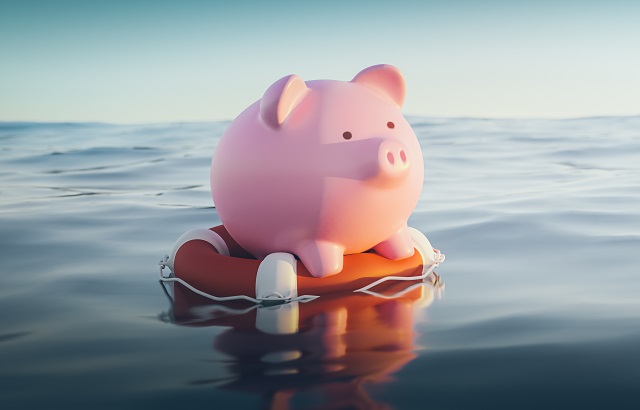The majority of Brits are not putting money into rainy day pots, according to research by Hargreaves Lansdown.
The investment firm polled 10,030 UK adults and found that 51% do not have enough emergency savings. Some 11% of UK households have a savings shortfall but have no idea they’re vulnerable.
The survey also found almost half of UK retirees (46%) don’t have a big enough safety net.
Sarah Coles, personal finance analyst at Hargreaves Lansdown, said: “More than half of us are vulnerable to nasty surprises, because we don’t have enough emergency savings to protect ourselves. Even retirees and higher earners have holes in their savings safety net.
“What’s even more alarming is how many people with a shortfall have no idea of the risk they’re taking, and that they’re not as resilient as they think. It’s worth bearing in mind that this research was carried out more than a year into the crisis, which has exacerbated the gap between those with enough cash to get by and those who are struggling.
“Among those without enough emergency savings, two-in-five households say things have got worse since the start of 2021, and only one-in-five say they’ve improved, so there’s a good chance we’re less resilient than at the outbreak of the pandemic.”
Higher earners
The survey also found households emergency savings gap is not just an issue for lower earners.
Almost one-in-four (23%) households earning over £100,000 ($137,066, €116,445) a year say they couldn’t cover their essential outgoings for three months.
Coles added: “This may be due in part to the tendency of expenses to expand to fill the cash available, so there’s nothing left over for savings. If you live in a property with a large mortgage, have children at private school, or expect to take several holidays a year, then eventually all these things feel like necessities that you can’t scale back in order to free up cash for emergencies.
“They may have other assets, including investments, which they feel they could draw on in an emergency. And there will be higher earners who find the target of three-to-six months of these outgoings is so high that they decide it’s a waste to keep that much in cash earning next to no interest and want to put it elsewhere to make it work harder.
“They risk having to withdraw money from their portfolio at completely the wrong time, which can mean facing a loss. At times, depending on the nature of the investments, this can be significant. Those on higher incomes who lack savings are far more vulnerable than they think. A drop in income, even in the short term, could leave them falling short of their essential commitments, which can have far-reaching consequences for years.”
How much cash should savers have?
Hargreaves Lansdown said that people of working age should have 3-6 months’ worth of essential spending in an easy access account for emergencies.
This means having at least £3,000 in savings for the average single person. In retirement, you should have one-to-three- years’ worth, which should be at least £9,000.








